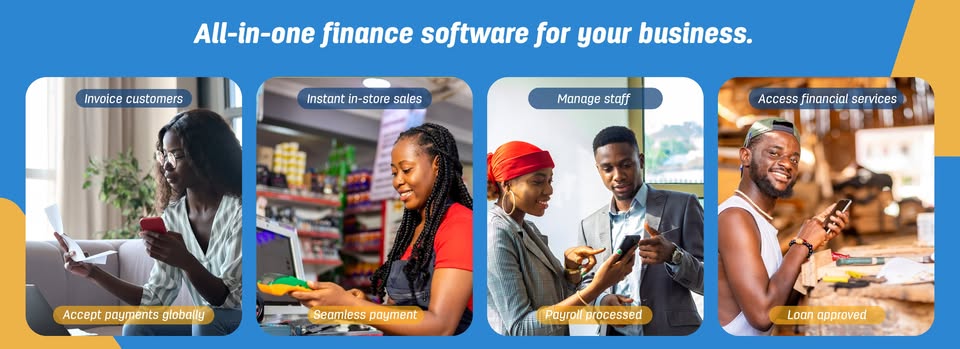
Starting a business in Ghana can be a great opportunity due to the country’s growing economy and supportive business climate. Whether you’re a local or an international investor, knowing the steps to start a business in Ghana is key to your success.
This guide will help you through each step, from coming up with your business idea to getting it up and running.
starting a business in Ghana
This guide will walk you through the essential steps, from idea conception to launching your business.
1. Identify your business idea.
A successful business starts with a great idea, so think about your own interests and passions. What excites you? Since running a business takes a lot of time and effort, you’ll stay motivated if you’re doing something you love.
For example, if you’re passionate about health and fitness, starting a wellness business could be a good fit.
Next, look for problems you can solve. Good business ideas often come from identifying gaps in the market or common issues people face. Pay attention to what people need and the problems they regularly encounter. Your business should aim to address these needs.
2. Conduct market research.
Before starting your business, do thorough market research to check if people need your product or service. This research will help you understand the market and find the best path to success.
It’s important for confirming your business idea. Look at your competition: who else is selling similar products or services? Study what they do well and where they fall short, so you can offer something better or different. Also, keep an eye on market trends, as they might show new opportunities to set your business apart.
3. Write a business plan.
A carefully crafted business plan serves as your blueprint for success. It should outline your business goals, target audience, competitive landscape, marketing strategies, operational approach, and financial forecasts.
Having a robust business plan is also crucial when you’re looking to secure funding from investors or financial institutions.
4. Register your business in Ghana.
Registration grants your business legal recognition as an official entity under Ghanaian law.
It boosts your credibility with customers, suppliers, and financial institutions, signaling that your business is legitimate and trustworthy, which helps attract clients and forge partnerships.
Additionally, registering your business enables you to open a business bank account, apply for loans, and engage with investors, as financial institutions often require proof of registration before providing financial services.
Steps to Register Your Business in Ghana
1. Choose the type of company.
When you’re set to register your business in Ghana, one important decision is selecting the type of company you wish to establish. This choice influences how you operate your business, handle taxes, and safeguard your personal assets.
The best business structure isn’t necessarily the one with the fewest compliance requirements but rather the one that provides sufficient legal protection and suits your business needs.
Here’s a breakdown of the main types of companies you can consider:
- Sole Proprietorship: Simple and easy to manage, but you’re personally responsible for all debts and liabilities.
- Partnership: This involves two or more people sharing ownership and responsibility. Good for joint ventures with shared risk.
- Limited Liability Company (LLC): protects your personal assets from business liabilities. Flexible and suitable for businesses of all sizes.
- Company Limited by Guarantee: Ideal for non-profits, with members acting as guarantors rather than shareholders.
- Public Limited Company (PLC): Suitable for large businesses that want to raise capital by selling shares to the public. It involves more regulations and responsibilities.
2. Choose your company’s directors and secretary.
In Ghana, a private company needs at least two directors, while a public company requires more. Directors can be Ghanaian or foreign, but at least one must be a resident of Ghana.
They should have the skills and experience needed for effective leadership, though specific qualifications aren’t required.
Public companies must have a company secretary, while private companies can choose to have one. Even if not required, having a secretary can help manage administrative tasks efficiently.
3.Select Auditors
Auditors in Ghana must be certified and registered with the Institute of Chartered Accountants Ghana (ICAG).
When choosing an auditor, select one with industry experience and a strong reputation, as they will ensure your financial records are managed accurately and transparently.
4. Choose a Business Name:
This next step involves selecting and registering a valid and trademark-free business name with the competent authority.
5. Register with the Ghana Revenue Authority (GRA)
Every business in Ghana is required to register with the Ghana Revenue Authority (GRA) for tax purposes.
The GRA will assign you a Tax Identification Number (TIN), which is necessary for all your tax transactions. Be sure to understand the tax obligations for your business, including Value Added Tax (VAT), corporate tax, and employee income tax.
6. Secure Funding
Depending on the scale of your business, you may need external funding to get started. Explore various funding options, such as personal savings, loans from financial institutions using built or venture capital. The Ghanaian government also offers various incentives and funding programs for small and medium enterprises (SMEs).
7. Prepare and submit the company’s regulations to the Registrar.
Regulations are constitutional documents that include essential details such as the company’s name, member roles, the company’s objectives, share capital, and members’ liabilities.
After preparing these regulations, you must submit an incorporation application to the Registrar of Companies.
Note that the application fee for company registration is 1% of the company’s stated share capital.
8. Register with Other Mandatory Institutions
Other key certificates that you must secure for a simplified business journey include:
- Tax certificate from the Ghana Revenue Authority
- Social Security and National Insurance Trust (in case your entity leverages manpower).
- Environmental Impact Assessment Certificate (if your entity falls under the notified category).
- A business operating permit from a local authority.
9. Apply for industry licenses.
If your entity falls under the notified category, you will be required to obtain industry-specific approval from the competent authority. This certificate is unrelated to establishment permits.
10. Open a Business Account
It’s important to separate personal and business finances, so open a business bank account to manage your finances effectively. This also helps maintain accurate financial records, which are crucial for tax purposes and financial management.
11. Set Up Your Business Location
Whether you need a physical storefront, an office, or a factory, finding the right location is key. Consider factors such as proximity to your target market, accessibility, and cost. If you’re running an online business, ensure that you have a reliable internet connection and the necessary technology.
12. Hire employees
If your business requires staff, you’ll need to recruit and hire employees. Ghana’s labor laws require that you provide employment contracts, adhere to minimum wage regulations, and ensure a safe working environment. Hiring the right team is crucial to your business’s success.
13. Promote your business.
With everything in place, it’s time to launch and promote your business. Utilize various marketing strategies, such as social media, traditional advertising, and word-of-mouth, to reach your target audience. Building a strong brand presence in Ghana’s competitive market is essential for attracting customers and growing your business.
Check our blog for some Business Survival Tips












No Comments